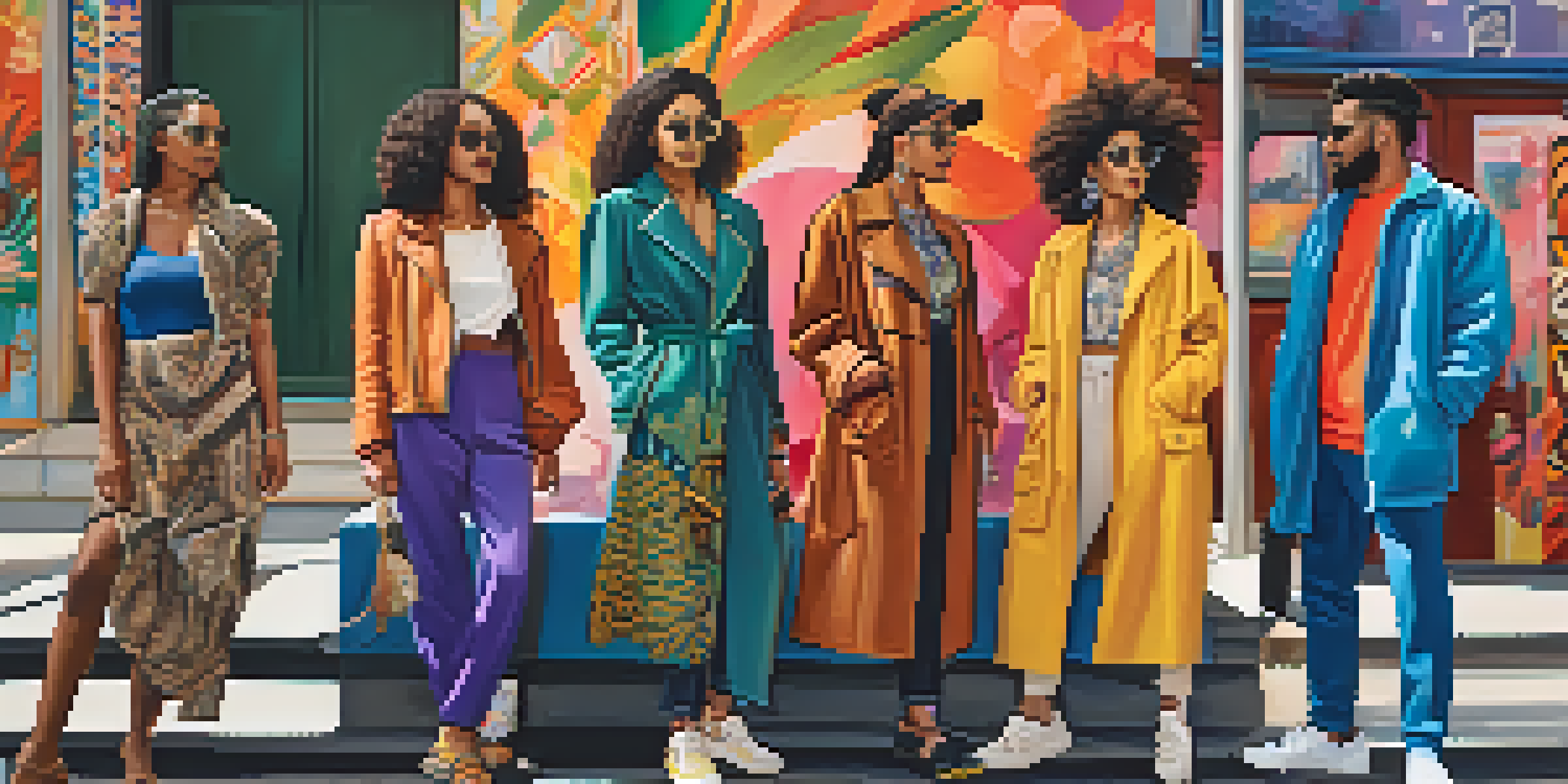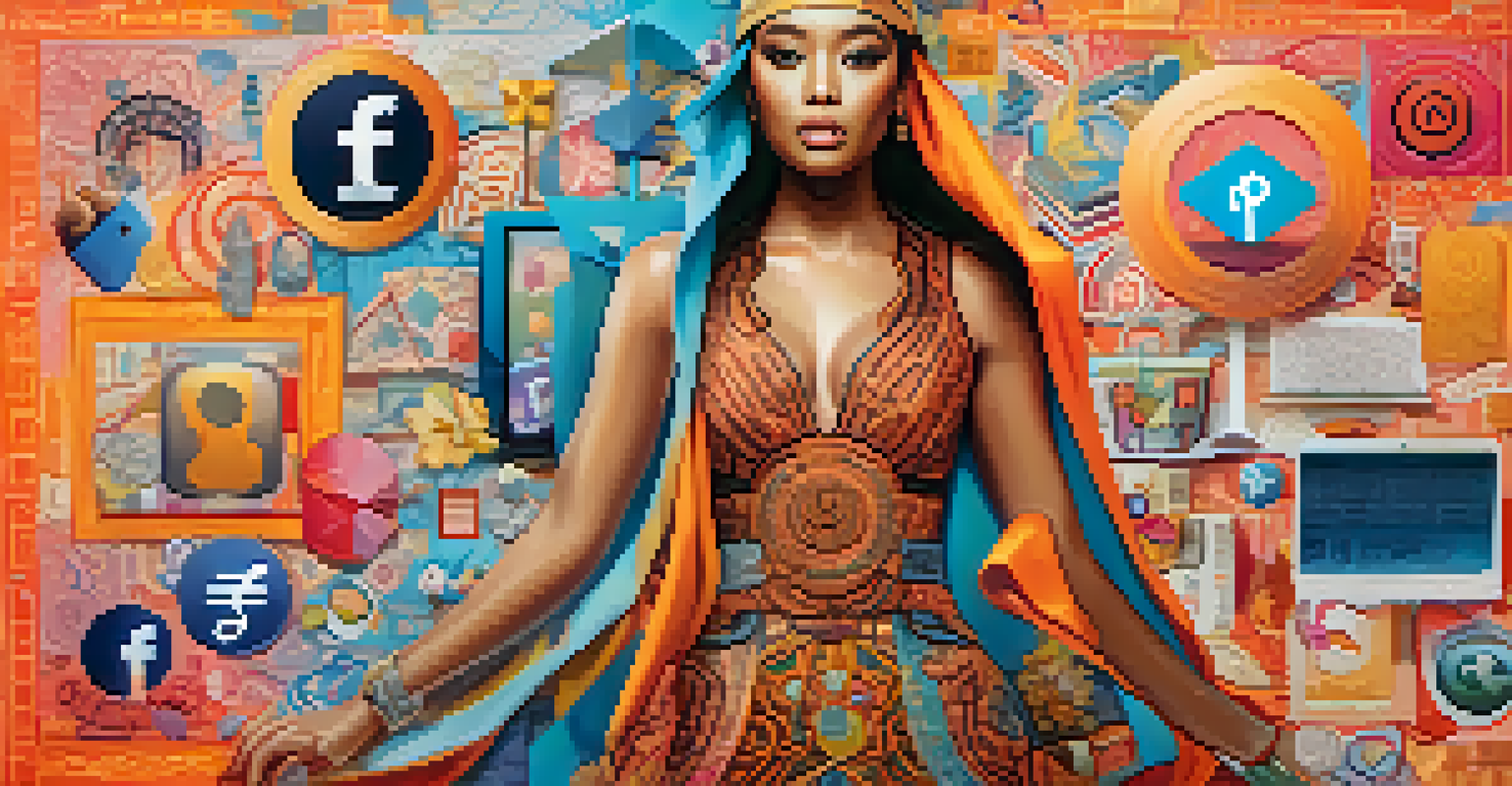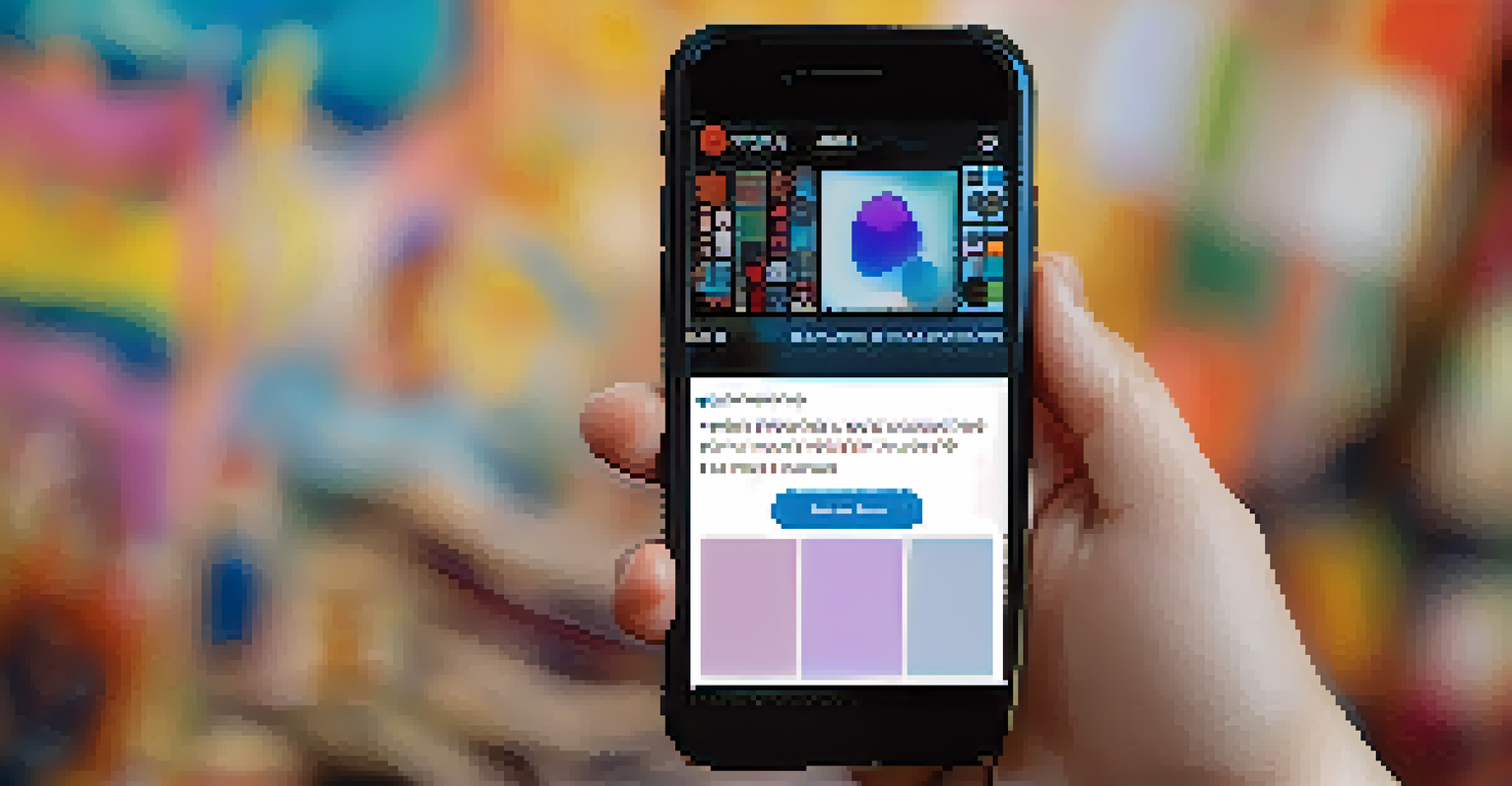The Role of Social Media in Highlighting Fashion Appropriation

Understanding Fashion Appropriation in Today's Context
Fashion appropriation refers to the adoption of elements from one culture by another, often without permission or understanding. This can lead to the commodification of cultural symbols, stripping them of their original meaning. In today's globalized world, where cultures intersect, it's essential to distinguish between appreciation and appropriation to foster respect and understanding.
Cultural appropriation is not just about borrowing; it's about understanding the story behind what you wear.
As fashion trends rapidly evolve, the lines between cultural exchange and appropriation can blur. For instance, when high-end brands borrow styles from Indigenous communities without acknowledgment, it raises ethical concerns. This context makes it vital for consumers and creators alike to engage in meaningful discussions about cultural significance and respect.
Ultimately, understanding fashion appropriation is not just about identifying what's wrong; it's about promoting a culture of awareness and respect. Social media acts as a platform for these discussions, allowing voices from various backgrounds to share their perspectives and experiences.
The Power of Social Media in Raising Awareness
Social media platforms like Instagram and TikTok have transformed how fashion is discussed and consumed. They provide a space for marginalized voices to share their experiences regarding cultural appropriation. By amplifying these narratives, social media helps educate a broader audience about the implications of borrowing cultural styles.

Hashtags like #CulturalAppropriation and #FashionEthics have gained traction, allowing users to easily find and contribute to the conversation. This collective engagement has the potential to shift public perception and encourage brands to reconsider their design choices. The more people participate in these discussions, the more likely it is that change will occur within the fashion industry.
Cultural Appreciation vs. Appropriation
Understanding the difference between appreciating and appropriating culture is essential to promote respect in fashion.
Moreover, influencers and activists utilize these platforms to call out brands that appropriate culture, creating accountability. When a fashion label faces backlash on social media, they often respond by re-evaluating their practices, highlighting the impact of digital activism.
Social Media as a Space for Education and Discussion
One of the most significant roles of social media is its ability to educate users about fashion appropriation. Creators often share insights through videos, infographics, and blog posts that explain the cultural significance of certain styles. This educational content helps demystify complex issues surrounding appropriation, making them accessible to a wider audience.
Fashion is a reflection of society, and we must ensure that what we reflect is respectful and inclusive.
Additionally, social media allows for real-time discussions, where users can engage in dialogue about their views on appropriated styles. This interactive element fosters a sense of community, encouraging people to share their stories and experiences. As more individuals participate in these conversations, the collective understanding of cultural sensitivity grows stronger.
Educational campaigns often go viral, spreading awareness beyond niche audiences. This ripple effect demonstrates how social media can serve as a powerful tool for change, prompting users to think critically about their fashion choices and the implications they carry.
Case Studies: Brands Called Out for Appropriation
Several high-profile brands have faced social media backlash for cultural appropriation, serving as important case studies. For instance, when a major retailer released a collection that featured traditional Native American designs without permission, social media erupted with criticism. This situation highlighted the need for brands to engage with the cultures they draw inspiration from.
Another example involves a popular fashion line that was accused of appropriating African hairstyles in their runway shows. Activists and influencers rallied on platforms like Twitter and Instagram, demanding accountability. These instances demonstrate how social media can mobilize consumers and instigate change, pushing brands to take responsibility for their actions.
Social Media Amplifies Voices
Platforms like Instagram and TikTok empower marginalized voices to discuss cultural appropriation and drive awareness.
Such case studies illustrate the tangible impact of social media in holding brands accountable. They also serve as valuable lessons for other companies, emphasizing the importance of cultural sensitivity in the fashion industry.
Influencers: Catalysts for Change in Fashion Appropriation
Influencers play a crucial role in shaping conversations around fashion appropriations on social media. Many use their platforms to educate their followers about the implications of cultural borrowing. By sharing their perspectives and experiences, they become catalysts for change, encouraging their audience to think critically about fashion choices.
For example, some influencers have created content that highlights the difference between cultural appreciation and appropriation, often sharing personal stories that resonate with their followers. This relatable approach fosters empathy and understanding, helping to bridge the gap between cultures. Their influence can inspire others to join the conversation and advocate for more responsible fashion practices.
Moreover, influencers who support ethical fashion brands can drive traffic to these companies, promoting a culture of respect. This shift in consumer behavior can pressure larger corporations to rethink their design processes and ensure that they honor the cultures from which they draw inspiration.
The Role of Activism in Shaping Fashion Narratives
Activism on social media has become a powerful force in shaping fashion narratives. Many activists utilize platforms to highlight issues related to cultural appropriation, urging followers to consider the ethical implications of their fashion choices. This grassroots approach empowers individuals to take a stand and advocate for change within the industry.
Through campaigns and online petitions, activists can mobilize support quickly and effectively. Social media allows for the rapid dissemination of information, enabling movements to gain momentum in a matter of hours. This immediacy can lead to significant shifts in public opinion, as seen in various fashion-related controversies.
Activism Drives Fashion Change
Grassroots activism on social media plays a crucial role in shaping fashion narratives and encouraging ethical practices.
Furthermore, the collaboration between activists and brands has the potential to create positive change. When brands partner with activists to promote cultural sensitivity, it demonstrates a willingness to learn and adapt. This collaboration can pave the way for a more inclusive and respectful fashion industry.
Looking Ahead: The Future of Fashion and Social Media
As social media continues to evolve, its role in addressing fashion appropriation will likely grow. Emerging platforms and technologies will provide new opportunities for dialogue and education, enabling more voices to be heard. The future of fashion will depend on how well the industry can adapt to these changes and prioritize cultural sensitivity.
Brands that engage with their audiences on social media and listen to feedback will be better positioned to navigate the complexities of cultural appropriation. By fostering open dialogue, they can build trust and loyalty among consumers. This shift towards transparency and collaboration could redefine the fashion landscape, making it more inclusive.

Ultimately, the intersection of social media and fashion appropriation presents both challenges and opportunities. By harnessing the power of these platforms, we can work towards a more respectful and culturally aware fashion industry that celebrates diversity rather than appropriating it.